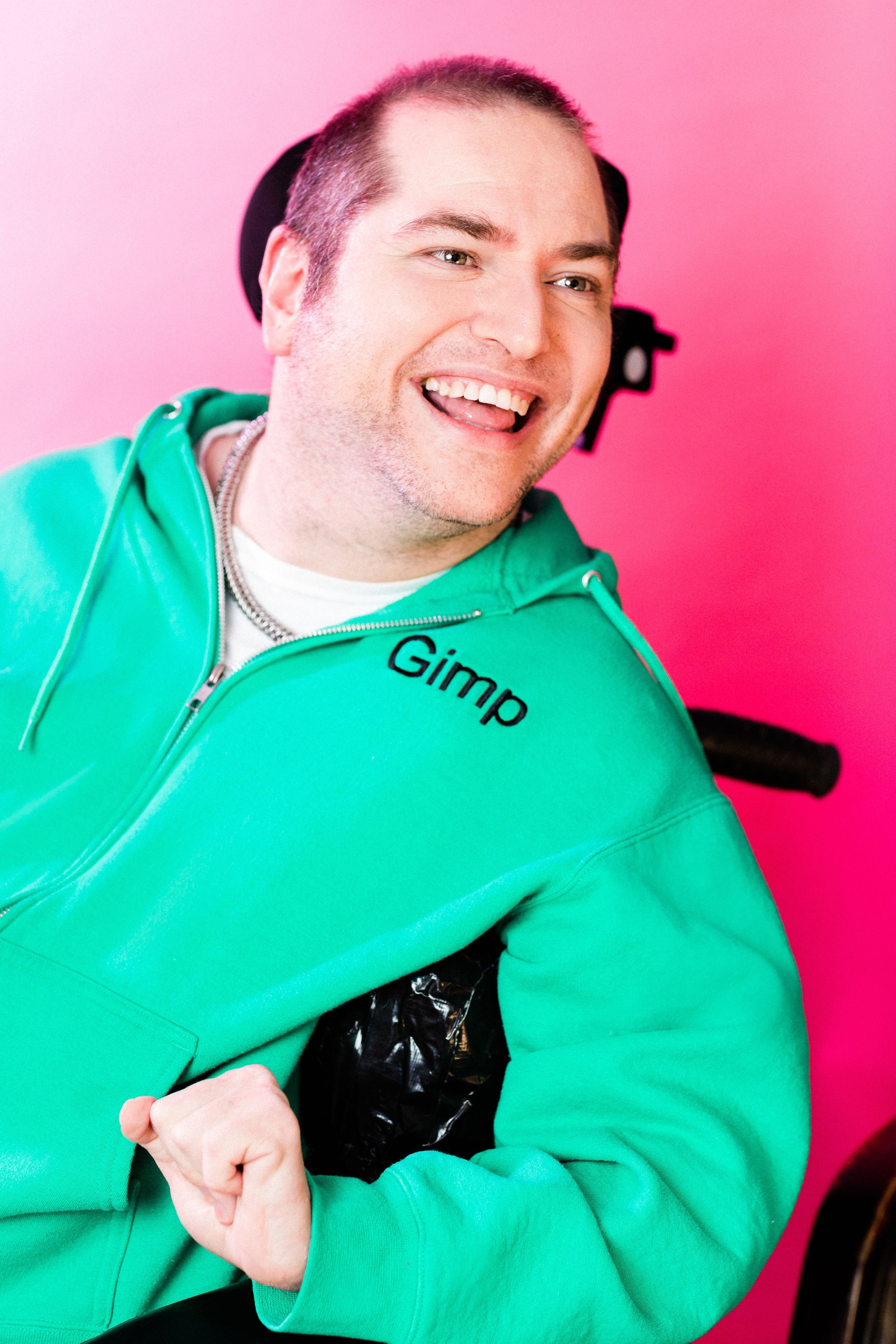I wanted to share with you a piece I wrote for a book about how Toronto Got Queer. I am honoured that my voice was featured in this collection. After reading this, go buy the book!
My day begins in Toronto with someone else’s hands all over me. Touching me. Moving me.
Before you get too flustered and excited, these are unfortunately not the hands of a new lover, at least not usually. They are the hands of my personal care worker helping me get ready for the day. They dress me and help me get into my wheelchair, making sure I look presentable for a lecture, or that I look handsome and devilish enough for a night out on the prowl.
On the rare occasions when I do make it down to the Village at Church and Wellesley, it’s always an interesting experience. As I get loaded onto the Wheel-Trans bus from my home in the Distillery District, I am full of an indescribable sense of hope and excitement: soon I will be in the iconic rainbow district. Almost every time I go, I am imbued with a giddiness that perhaps this time things will be different. Maybe I will meet someone, and maybe I won’t feel so out of place.
As I get closer and see the welcoming rainbow flags peeking out of some of the establishments, my excitement around the possibilities grows that much stronger. The chance that maybe I’ll get lucky, along with a mixture of excitement, fear, and trepidation, are some of the thoughts and feelings that race through my mind as I inch toward my destination.
Once I arrive, though, all that excitement begins to fade.
As I get off the bus and begin to navigate the Village as a wheelchair user, my feelings shift. I pass all the bars, pubs, and kinky clubs with their back rooms, looking at them longingly. I know I can’t get my wheelchair inside these sacred spaces where my community comes (pun intended). I imagine what it would be like if I could enter these long-standing institutions, these palaces of possibility and playfulness. I picture each club with no stairs or tiny doors that I can’t access, and envision myself rolling through the front door with a smile on my face and a good-looking guy on each armrest of my wheelchair. Those images fall away as I continue down the street.
When I glance at all the posters and event pop-ups plastered on signposts along the way, I can see that nearly every type of queer man is represented on these posters: muscle hunks, leathermen, bears, otters, club kids, twinks, drag queens. Each of these iconic staples has a place in our Village. The one figure I don’t see is the Queer Cripple, the Bear in the Chair, the guy in his wheelchair inviting you to sit on his lap. He is nowhere to be found. He has no poster or place among all the rest, for he is invisible. Out of sight and out of mind.
While that’s a shame, it isn’t at all surprising, nor is it new. I found an archived article from the 1980s in The Body Politic entitled “Blind, Dead or in a Wheelchair – and Gay.” It was both exciting and dismaying to see those who had come before, linking me to my past and my Queer Cripple history. As I read the article, I realized sadly that even some thirty years on, not much had changed. Queer Cripples are still fighting to be seen in our LGBTQ+ communities. As I read this, I started to cry a little (okay, I blubbered like a baby); knowing we’ll probably never be able to stop fighting broke my heart a little.
As a Disability Awareness Consultant, my role is to ensure that Queers with Disabilities get recognition, attention, and the resources they need when they arrive in this city, alone and not knowing where to turn. Through my brand, DisabilityAfterDark, I shed light on what being a Queer Cripple really feels like. With my work and podcasts, I share, candidly, my experiences hooking up as a Queer Cripple, what it’s like getting intimate with me, and how sex for me carries so much more weight than people likely realize. DisabilityAfterDark allows me to claim my existence and place in Toronto, and to say, “I’m here. I am going to make you notice me, and if you stick around, I guarantee you will like it.”
My work invites you into my village instead of my having to ask permission to enter yours.
Excerpted from Any Other Way: How Toronto Got Queer" (Coach House Books, 2017), https://chbooks.com/Books/A/Any-Other-Way



